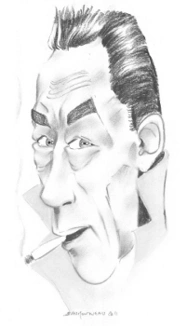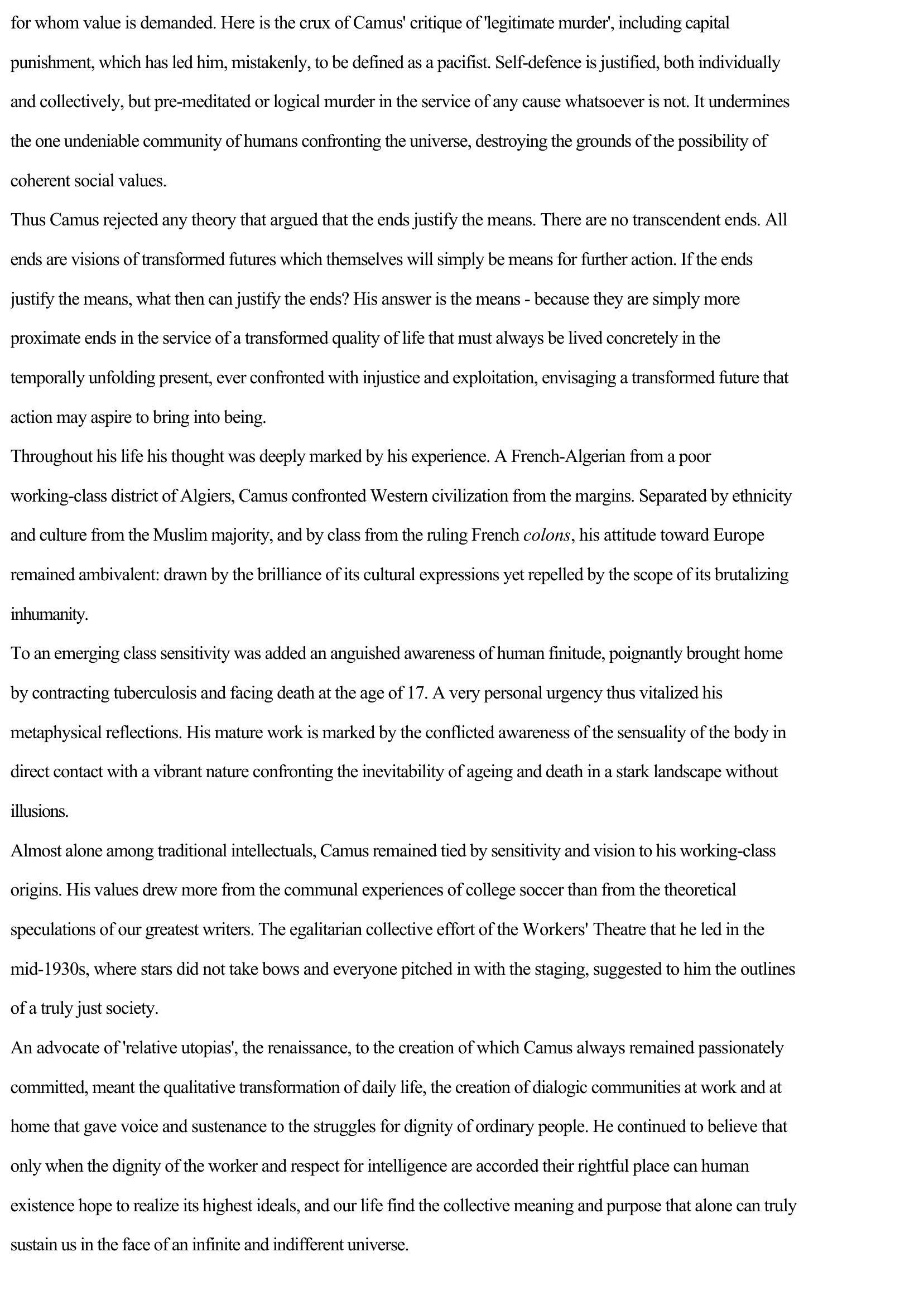Camus, Albert (article universitaire)
Publié le 25/02/2010

Extrait du document


«
for whom value is demanded.
Here is the crux of Camus' critique of 'legitimate murder' , including capital
punishment, which has led him, mistakenly, to be defined as a pacifist.
Self-defence is justified, both individually
and collectively, but pre-meditated or logical murder in the service of any cause whatsoever is not.
It undermines
the one undeniable community of humans confronting the universe, destroying the grounds of the possibility of
coherent social values.
Thus Camus rejected any theory that argued that the ends justify the means.
There are no transcendent ends.
All
ends are visions of transformed futures which themselves will simply be means for further action.
If the ends
justify the means, what then can justify the ends? His answer is the means - because they are simply more
proximate ends in the service of a transformed quality of life that must always be lived concretely in the
temporally unfolding present, ever confronted with injustice and exploitation, envisaging a transformed future that
action may aspire to bring into being.
Throughout his life his thought was deeply marked by his experience.
A French-Algerian from a poor
working-class district of Algiers, Camus confronted Western civilization from the margins.
Separated by ethnicity
and culture from the Muslim majority, and by class from the ruling French colons , his attitude toward Europe
remained ambivalent: drawn by the brilliance of its cultural expressions yet repelled by the scope of its brutalizing
inhumanity.
To an emerging class sensitivity was added an anguished awareness of human finitude, poignantly brought home
by contracting tuberculosis and facing death at the age of 17.
A very personal urgency thus vitalized his
metaphysical reflections.
His mature work is marked by the conflicted awareness of the sensuality of the body in
direct contact with a vibrant nature confronting the inevitability of ageing and death in a stark landscape without
illusions.
Almost alone among traditional intellectuals, Camus remained tied by sensitivity and vision to his working-class
origins.
His values drew more from the communal experiences of college soccer than from the theoretical
speculations of our greatest writers.
The egalitarian collective effort of the Workers' Theatre that he led in the
mid-1930s, where stars did not take bows and everyone pitched in with the staging, suggested to him the outlines
of a truly just society.
An advocate of 'relative utopias' , the renaissance, to the creation of which Camus always remained passionately
committed, meant the qualitative transformation of daily life, the creation of dialogic communities at work and at
home that gave voice and sustenance to the struggles for dignity of ordinary people.
He continued to believe that
only when the dignity of the worker and respect for intelligence are accorded their rightful place can human
existence hope to realize its highest ideals, and our life find the collective meaning and purpose that alone can truly
sustain us in the face of an infinite and indifferent universe..
»
↓↓↓ APERÇU DU DOCUMENT ↓↓↓
Liens utiles
- L'homme révolté d'albert Camus
- commentaire la famille Albert camus - Le Premier homme
- L'Etranger d'Albert Camus (présentation de l'euvre: personnages, résumé, thèmes)
- Fiche de lecture sur la peste d'Albert Camus
- Albert Camus Discours de Stockolm

































